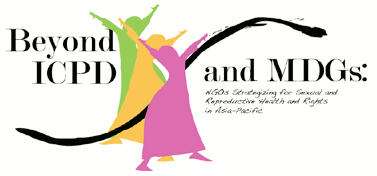- Details
 Over 200 girls are missing in Nigeria – Please RESCUE THEM! #BringBackOurGirls
Over 200 girls are missing in Nigeria – Please RESCUE THEM! #BringBackOurGirls
When the school girls were abducted on April 14th, the mass media barely made mention of the fact. The international campaign to rescue them finally caught the attention of the mass media, only after Nigerian women, women’s organisations and other movements used social media to call for solidarity. International rallies are being held around the world and Change.org is circulating a petition (see link at end of article).
Read more: Over 200 girls are missing in Nigeria – Please RESCUE THEM! #BringBackOurGirls
- Details
25 July 2013
PRESS RELEASE
2013 Ramon Magsaysay Awardees Announced
The Board of Trustees of the Ramon Magsaysay Award Foundation (RMAF) today announced that this year three individuals and two organizations from Afghanistan, Indonesia, Myanmar, Nepal and the Philippines will receive Asia’s premier prize, the Ramon Magsaysay Award.
- Details
Letter from Hibaaq Osman
On January 25th of last year, the Egyptian people sparked an unexpected series of protest against the decades-long rule by the Mubarak regime.
According to Gallup, Egyptian women made up almost a third of the protesters during the revolution. Women were on the front lines and at every stage, caring for the wounded, protecting their communities, leading demonstrations, and building coalitions.
- Details

Maria De Fatima Kalcona and her daughter DILI, 5 June 2012 (IRIN) - When Indonesian forces invaded Timor-Leste in 1975, Maria De Fatima Kalcona hid in the jungle with resistance fighters, but after years on the move, and hobbled by a gunshot wound, she was eventually captured in 1979.
- Details
proposed by
Focus on the Global South (Thailand), Instituto Nupef (Brazil), IT for Change (India),
Knowledge Commons (India), Other News (Italy) and Third World Network (Malaysia)
and endorsed by
organisations and individuals listed at the end of the statement
Read more: Call for Support and Endorsement: Global Governance of the Internet must be Democratised!
- Details
 More than 120 activists, advocates and representatives from CSOs across movements and generations from 27 countries in Asia and the Pacific gathered in Kuala Lumpur from May 2-4 have spoken! The Kuala Lumpur Call to Action outlines our 12-point Call to governments, international organisations, including UN agencies, development partners and other duty bearers, for sexual and reproductive health and rights (SRHR) for sustainable development.
More than 120 activists, advocates and representatives from CSOs across movements and generations from 27 countries in Asia and the Pacific gathered in Kuala Lumpur from May 2-4 have spoken! The Kuala Lumpur Call to Action outlines our 12-point Call to governments, international organisations, including UN agencies, development partners and other duty bearers, for sexual and reproductive health and rights (SRHR) for sustainable development.
Page 1 of 39





 The
The 
 Isis Resource Center holds one of the largest feminist collections of materials in the Global South. With 40 years of publication experience, Isis holds a vast collection.
Isis Resource Center holds one of the largest feminist collections of materials in the Global South. With 40 years of publication experience, Isis holds a vast collection.